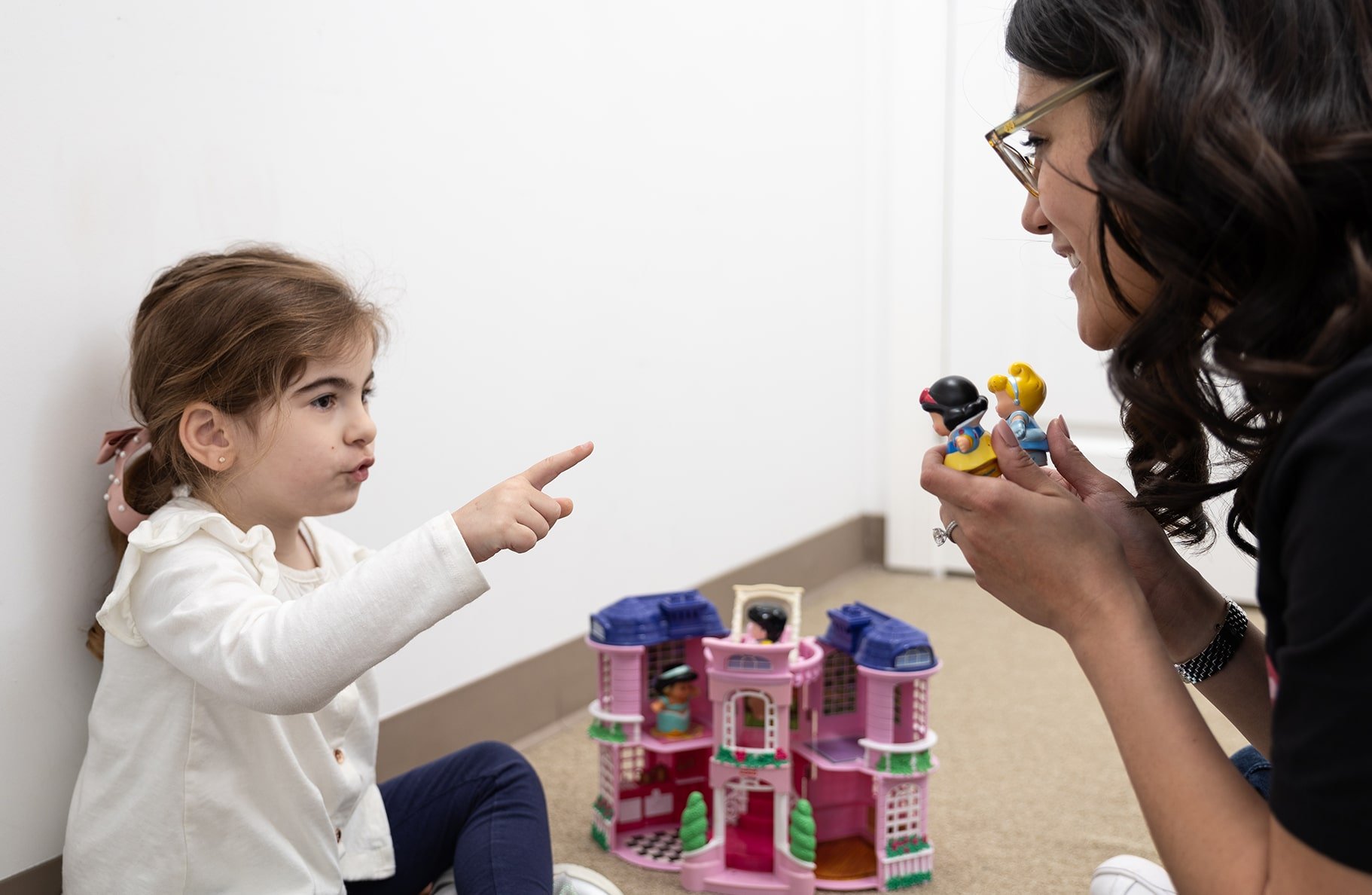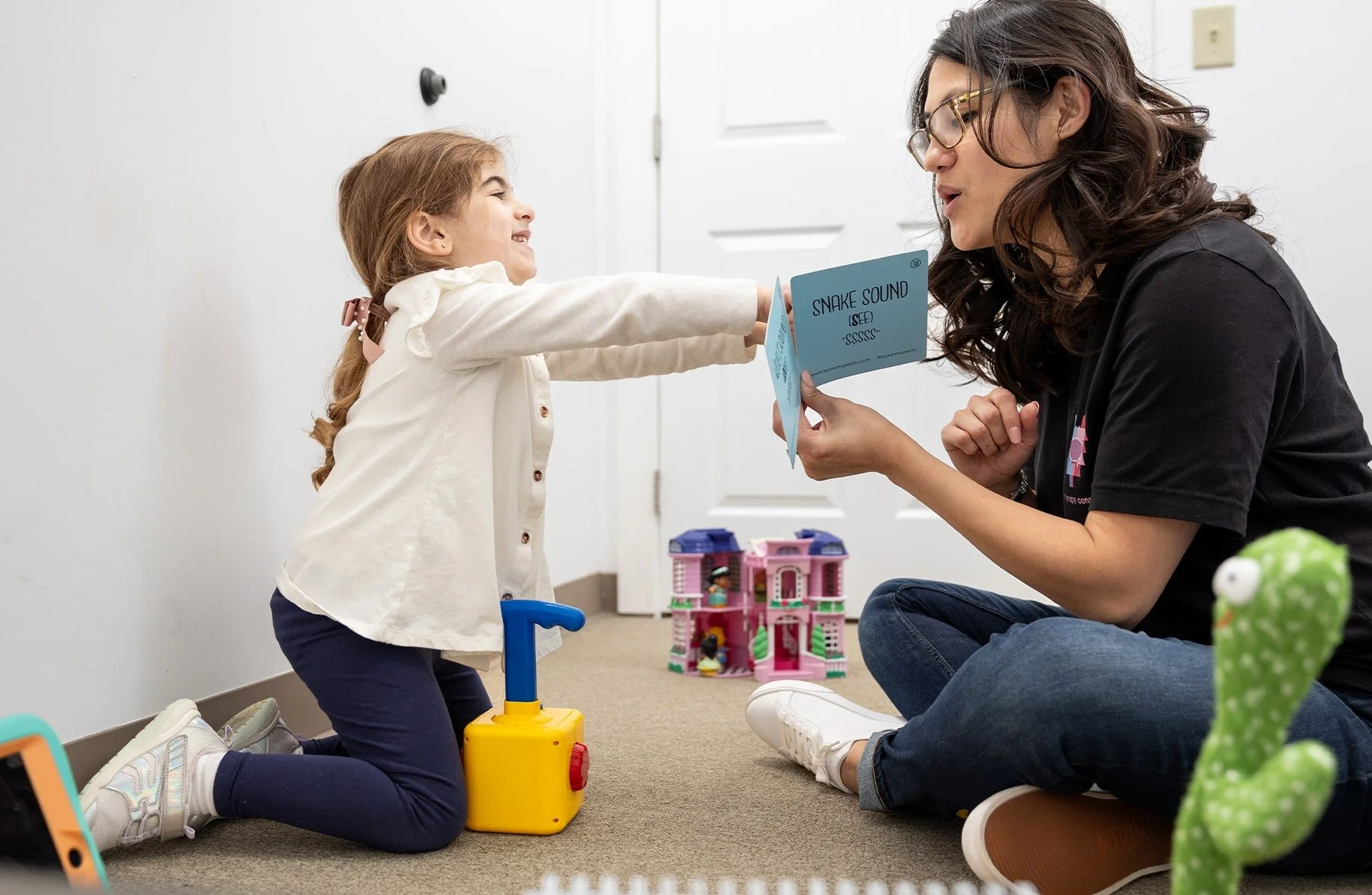
Speech Therapy Connections
Helping Your Late Talker Find
Their Voice
Picture this: having conversations with your child, understanding their needs, and hearing them share all of their thoughts with you! If you are concerned about your child’s language development and suspect there may be a language delay, you’re not alone. At Speech Therapy Connections, we understand those mixed of emotions that come while you’re anxiously waiting for those first words or watching other children that seem to communicate without trouble.
We hear you, and we see you. Here are some signs your child may be a late talker and why early evaluation is so important:
While every child develops at their own pace, early intervention can make a significant difference in your child's communication journey. Many well-intentioned providers, friends, and family members might suggest "wait and see" or share stories like "my son talked late, and he's fine now." While these comments come from a good place, we don't know which children will catch up without support and which ones need intervention. The first three years of your child's life are critical for language development, and having your child evaluated can only benefit your family - either providing peace of mind or giving you the tools and strategies to best support your child's communication growth.
By 12 months, your child should:
Use gestures like waving "bye-bye" or pointing
Respond to their name
Understand simple directions like "come here"
Make different babbling sounds
Say 1-2 words like "mama" or "dada"
By 18 months, your child should:
Use at least 10-20 meaningful words
Point to body parts or familiar objects when asked
Follow simple one-step directions
Engage in simple pretend play
Show interest in other children
By 24 months, your child should:
Use at least 50 words
Combine two words together ("more milk," "daddy go")
Follow two-step directions
Show growing interest in playing with others
Point to pictures in books when named
When families start their journeys with us, they come to us feeling…
Worried that their child doesn’t have many words
Overwhelmed by conflicting advice they’re getting from family members, friends, and random strangers in parent Facebook groups
Frustrated that they are not able to understand what their child needs
Concerned about their child’s ability to communicate effectively
What Makes Our Approach Different?
We don't believe in drilling words or forcing communication. Instead, we:
Create engaging, playful environments that motivate communication
Build on your child's current communication strengths
Honor all forms of communication, not just verbal speech
Teach you practical strategies to support language at home
Help you understand your child's unique communication style
Celebrate all forms of progress, big and small
Support both you and your child throughout this journey
Our Approach To Speech Therapy
Our Supportive Approach to Language Development?
At Speech Therapy Connections, we believe that every child develops at their own pace, and there's no one-size-fits-all approach to supporting language development. We focus on meeting your child exactly where they are, using their interests and natural motivation to build communication skills through play and daily routines.
What families experience with our support…
Increased initiation in communication / attempts to communicate
Reduced frustration during daily activities
Greater confidence in supporting their child’s language development
Strong relationships built through improved communication
Speech Therapy Connections



